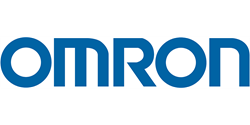Radio Frequency communication dates back as far as the early 1800’s, but the onset of software in the technology’s space is again revolutionizing the RF industry. To aid in the transition away from legacy RF, Analog Devices has recently released a new educational tool to help students and industry professionals learn the fundamentals of Software Defined Radio (SDR).
This Active Learning Module helps introduce the fundamentals of RF and communications as advanced electrical engineering topics, whether self-taught or instructor-lead. The PlutoSDR active learning module, which is part number ADALM-PLUTO, is great for anyone, including developers, who are working with Software Defined Radio or any RF application.
Software Defined Radio as a technology provides a re-usable and “future-proof” radio platform given its robust software-configurability and control, improved system performance, reduction in system size, and minimization of design risk and time-to-market. The PLUTO active learning module is based on the AD9363 highly integrated RF agile transceiver and Xilinx Zynq Z-7010 FPGA making this tool extremely portable, self-contained, and efficient.
Whether you are an educator, student, or even an RF developer, the PLUTO active learning module is of the perfect size to be useful in nearly any prototyping or learning application. Given the high quality of being an Analog Device product, this module is supplementary to its product line as well as the RF industry as a whole.
The module itself is capable of up to 20Mhz of instantaneous bandwidth even given RF frequency coverage from 325 MHz to 3.8 GHz. There is one transmitter and one receiver onboard, making this cost effective regardless of your use. The module also offers MATLAB and Simulink support, which makes it very education friendly, and has a multitude of different language APIs. This easy-to use module is essentially a portable RF lab that connects RF theory with RF practice.
Ähnliches Produkt:
To learn more about RadioVerse, click here


